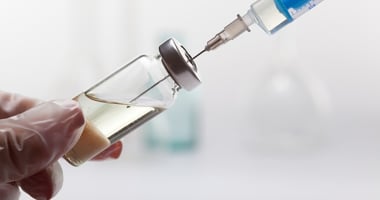Patients with a recent first episode of schizophrenia who are treated with a long-acting injectable...
Three-Month Form of Paliperidone Reduces Relapse in Schizophrenia, Study Shows
 |
Researchers with Janssen Research & Development LLC conducted a randomized, multicenter trial from April 2012 through April 2014 in eight countries. Of the 506 patients enrolled (aged 18 to 70 years; DSM-IV-TR diagnosis of schizophrenia), 305 were randomized to three-month paliperidone palmitate (n=160) or placebo (n=145).
A total of 42 patients (29 percent) in the placebo group and 14 patients (9 percent) in the group receiving three-month paliperidone palmitate experienced a relapse event. Consequently, the independent data-monitoring committee recommended early study termination for efficacy.
Paliperidone palmitate was originally formulated as a once-monthly atypical antipsychotic long-acting-injectable (LAI) and is approved for treatment of schizophrenia in adults in numerous countries. The recently developed three-month formulation offers the prospect of reducing relapse risk related to sub-therapeutic plasma concentrations and its associated negative consequences in patients with schizophrenia, the researchers noted.
“Patients randomly assigned to placebo were nearly four times more likely to relapse … than those who continued to receive three-month paliperidone palmitate,” they stated. “Patients at risk for sudden discontinuation from treatment could therefore benefit from three-month paliperidone palmitate, providing protection from relapse for up to one year after the last dose.”
For more on this topic, see the Psychiatric News article “Some Experts Urge More Use of Long-Acting, Injectable Antipsychotics.”
(Image: molekuul.be/shutterstock.com)




